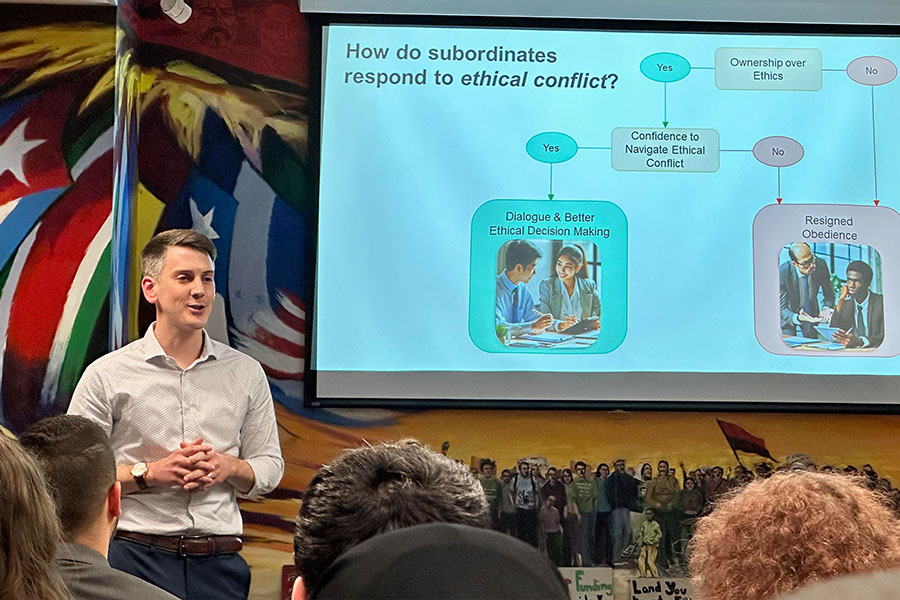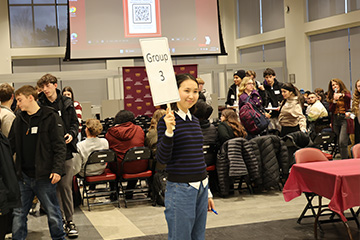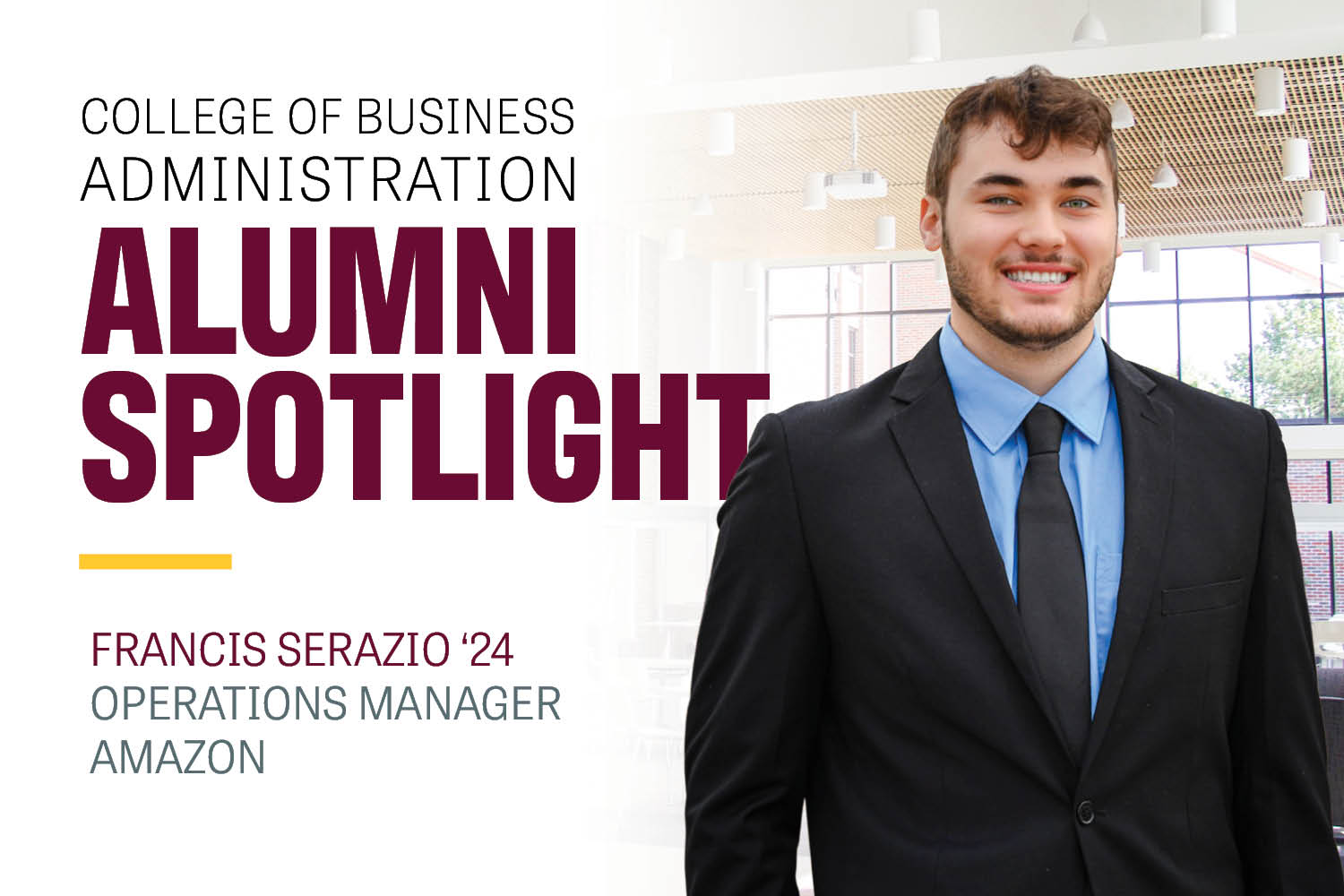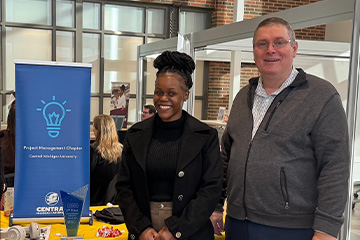From performance to practice to the classroom
New management faculty member brings real-world perspective and research focus to CMU
When Alex Effinger began his undergraduate studies in music performance, he didn’t expect his journey would lead him to a classroom—not with a trumpet, but with a lecture. Now joining the management faculty at Central Michigan University’s College of Business Administration, Effinger brings over a decade of hands-on leadership experience, a passion for student growth, and a research-driven approach to developing effective leaders.
“I had a long path to academia,” Effinger said. “My undergrad was in music performance. I'm a trumpet player.”
A chance connection with a fellow LSU marching band member led to a job at a lifeguard company, where Effinger discovered a love for training and development. He became the training director and coordinated everything from CPR in-services to skills audits—experience that inspired him to pursue a master’s in human resource education.
“My goal was to stay working in industry as a training professional. I wanted to do the master's just to better understand how to do training according to the research,” he said. “I did not want to be an academic.”
But a faculty member saw potential and invited him into a research project. “I had fun doing that, really enjoyed it,” Effinger said. “I also really enjoyed leading seminars. One of the topics I led was ethical leadership—and I had a blast doing that.”
That blend of applied practice and academic inquiry stuck. With his mentor’s support, Effinger pursued a Ph.D. in Business Administration with an emphasis in Organizational Behavior and Human Resource Management at the University of Illinois Chicago.
His research focuses on servant leadership, leader–member exchange, and ethics within organizations—especially misunderstandings between leaders and their direct reports on ethical matters. His work has appeared in the Journal of Applied Psychology, and he continues to explore how leaders can foster stronger communication, collaboration, and negotiation across teams.
Effinger’s classroom approach is rooted in interaction, critical thinking, and practical application.
“I like to get [students] thinking and engaging by asking critical thinking questions,” he said. “For example, if we’re talking about servant leadership, why do you think people appreciate service from their leader? Why does that motivate them to work harder?”
He uses interactive exercises and real-life applications to reinforce key concepts. “When you’re physically engaged, it’s harder to zone out,” he said.
“There are communication skills you should develop that are applicable in all domains of your life, like conflict resolution or time management,” he added. “Even if you're applying them in your romantic relationship or your friend group … those are all business skills.”
Effinger brings more than 12 years of professional experience to the classroom, including past roles as senior vice president and chief learning officer. He’s led hiring, onboarding, training, and leadership development for small and mid-sized organizations—and he actively draws from those experiences to enrich his students’ learning.
“I take pride in doing a good job,” he said. “I feel happy when, toward the end of the semester, things are starting to click for students and they understand the major concepts. You can see growth and development.”





